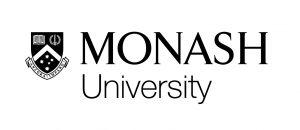
Posted: 29 November 2023
Eating nuts may enhance male fertility, a Monash University-led research review has found.
The authors now want more research into the potential benefits of nuts for male and female fertility after finding only two intervention studies on men eating more than two serves per day and none on women.
Published in Advances in Nutrition, the first systematic review of evidence on the association between nuts and fertility in men and women found daily intake could improve sperm quality.
It found four papers, including two randomised clinical trials that gave healthy men on a western style diet at least 60 grams (two handfuls) of nuts per day. Meta-analysis of the trials, which involved a total of 223 healthy males aged 18-35, found sperm quality but not sperm concentration improved.
One trial provided 75 grams of whole-shelled English walnuts per day for 12 weeks, and the other provided 30 grams of walnuts, 15 grams of almonds and 15 grams of hazelnuts each day for 14 weeks. A control group ate a similar diet with no nuts.
First author Dr Barbara Cardoso, from Monash University’s Department of Nutrition, Dietetics and Food and Monash Victorian Heart Institute, said the trials allowed for the possibility that those eating nuts were healthier anyway.
Dr Cardoso also said while specific nuts were used, other combinations would probably also help – as long as those eating them had no allergy issues.
“The statistical analysis in both studies was adjusted for other factors such as physical activity,” she said. “The findings show that this simple strategy has positive effects regardless of other lifestyles.
“The trial participants ate a Western-style diet, which was not necessarily healthy. This means that adding nuts to their regular diet had a positive effect without the need for further dietary changes.
“The implications of these findings are of great value to people trying to conceive, but we also need studies to assess the effects of nuts on female fertility. We would advocate for more male and female studies to strengthen the results.”
Infertility is defined as no pregnancy after 12 months of regular and unprotected sex. An estimated 8-12 per cent of reproductive-aged couples are affected globally.
The systematic review and meta-analysis hypothesised that the high concentration of omega-3 polyunsaturated fats, dietary fibres, vitamins, minerals and polyphenols found in nuts could improve reproductive health.
“We’re speaking of either raw or roasted nuts,” Dr Cardoso said. “I’d avoid salted or sweetened nuts as salt and sugar can be associated with different health issues such as hypertension and insulin resistance.”
No randomised clinical trials have been conducted exploring the effect of nut consumption on female fertility.
Senior author Dr Nicole Kellow said a review the team published last year identified an association between a Mediterranean-style diet and increased probability of achieving a clinical pregnancy and live birth in women undergoing IVF.
Dr Kellow, from the Department of Nutrition, Dietetics and Food and Hudson Institute of Medical Research’s Centre for Innate Immunity and Infectious Diseases, said nuts were one of many beneficial foods in the Mediterranean diet.
“In the studies we reviewed, men were only required to consume 60-75 grams of nuts each day in order to achieve significant improvements in sperm quality,” she said. “This is only approximately two handfuls of nuts per day.
“Many people think that nuts are fattening, but research shows that people who eat 1-2 handfuls each day are actually more likely to be leaner than those who don’t eat nuts. Also, nuts contain monounsaturated fats, antioxidants and dietary fibre, essential nutrients which are vital for good health.”



